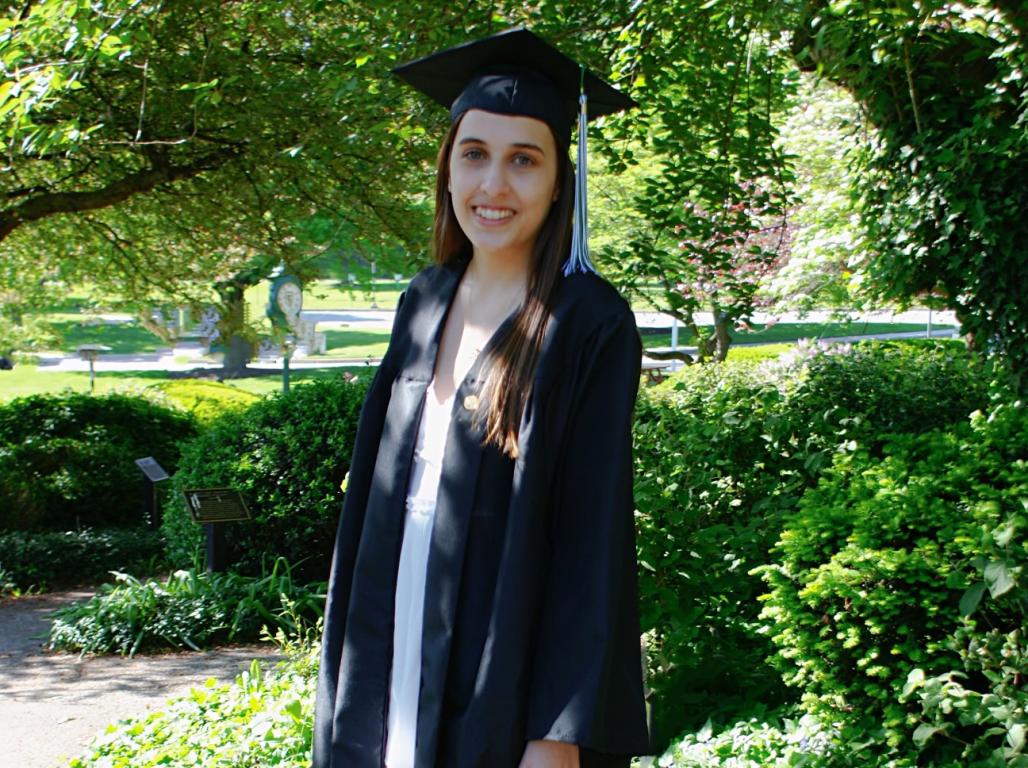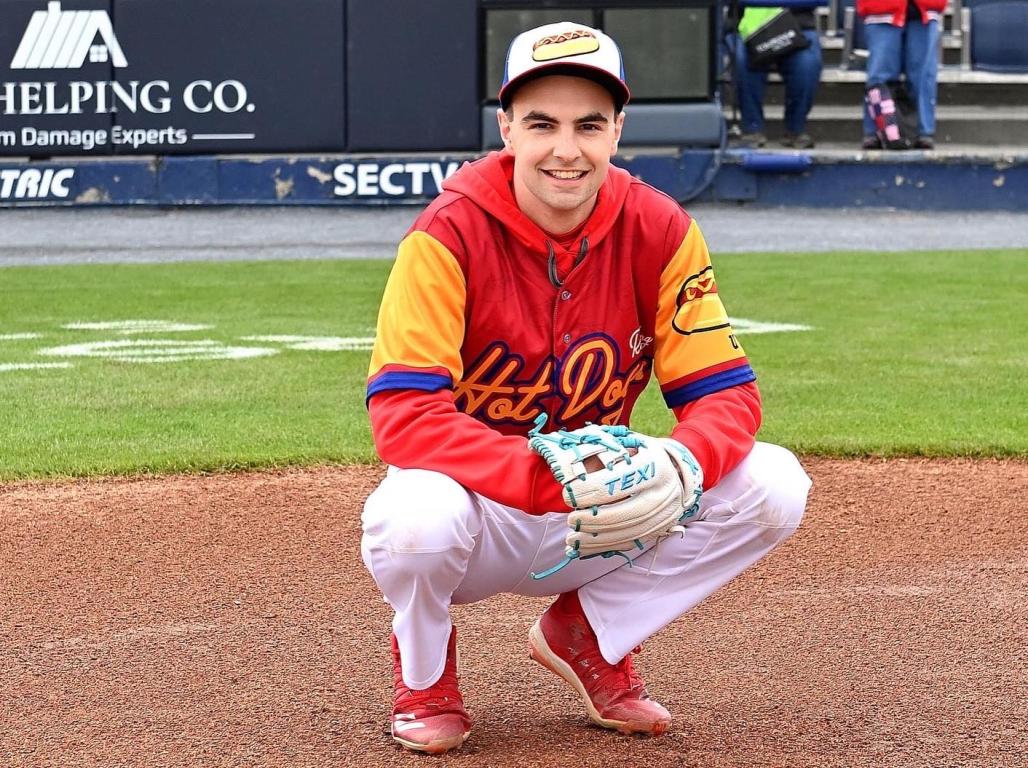
Since moving to Atlanta six years ago, the 2018 York College of Pennsylvania graduate has worked on several movie and television productions. Her Mass Communication degree has helped her step into an array of opportunities.
Emily Swank ’18, a Mass Communication graduate of York College of Pennsylvania, has spent six years navigating Atlanta’s growing television and film industry. She has worked on TV and movie crews as a production assistant and special-effects office coordinator. She even landed a job, her most recent, as an audience member for the popular show “Family Feud.”
In the process, Swank has learned that making it in the film and television industry requires treading a pathway different from more traditional jobs.
“It’s about who you know and being in the right place at the right time,” she says. “It’s a lot of networking and promoting yourself.”
Nurturing a passion through hands-on learning
Growing up in York, Swank knew in high school that she wanted to work in film and television. After earning an associate degree in film and video production from a Philadelphia-based art school, she sought a more traditional college experience to complete her bachelor’s degree. After touring several schools in the area, she chose York College.
“It had what I was looking for while still being small,” she says.
At York College, Swank’s passion for video production was nurtured through hands-on experiences and diverse projects. She had her own show on the College radio station WVYC called “Emily’s Playlist,” where she talked about and played her favorite songs for two hours a week.
Her involvement in documentary-style storytelling and enrollment in a news station class provided her with practical skills directly transferable to her career. The news station class even used the same style of switchboard as on “Family Feud.”
Of all her classes and activities, serving as an Orientation Leader for new students most helped her succeed as a production assistant. Many of the skills she honed while helping students acclimate to college life have proven transferable, such as being on time, maintaining an excited demeanor even during long production days, and devising ways to be helpful.
Her marketing duties of sharing great things about the College during orientation sessions helped Swank learn to promote herself as she sought contracting jobs in the industry. Orientation also taught her to be comfortable leading, teaching, and talking with large groups.
“It’s a lot of whatever gets thrown at you. You have to be ready for it,” she says.
During her bachelor’s degree studies, Swank completed two internships that also helped her prepare for her current role. She worked as a marketing assistant and video intern at rabbittransit, the transportation company serving York and Adams Counties, and Johnson Controls, which provides building technology, software, and services. The opportunities helped solidify Swank’s strengths as a self-starting creative.
Starts and stops in a volatile industry
Swank began establishing herself in TV and film work in Atlanta, sometimes called the “Hollywood of the South,” shortly before the COVID-19 pandemic hit in 2020 and halted production. Then, just as the industry was beginning to recover, strikes by actors and writers effectively shut down the industry again.
“The strikes affected everyone across the world,” Swank says. “We’re still seeing negative effects. No one was working for months. It was devastating for my industry.”
Every month since the strikes ended, Swank has seen signs of the industry recovering. She hopes that by this fall, more jobs and opportunities will open up. While she’s been able to find work in the slow seasons thanks to the connections she has made during her six years in Atlanta, there often isn’t enough work to go around.
That has led Swank to pick up jobs such as serving as an audience member, which she did for season 26 of “Family Feud.” Swank was on set almost every day from February to May, ready to fill in if a ticket holder didn’t show up. Each day required problem-solving, she says.
On a typical day working on any set, a call sheet outlines the day’s filming schedule, followed by morning meetings and safety sessions. Sometimes days were shorter, but 12 hours is standard and 18 hours or longer isn’t unheard of.
One of the first projects Swank worked on after moving to Atlanta was “The Outsider,” a 2020 supernatural thriller based on a Stephen King novel and released on HBO. During filming, the crew would work through the night. For one scene, the director brought in extras and filmed a large festival called CaveFest, which Swank describes as a mash-up of renaissance faire meets Burning Man.
“That was one of the most fun shoots I’ve been a part of,” she says.
In another instance, Swank served as a locations production assistant on a show with wrestling legends Phil Brooks, better known as CM Punk, and Mick Foley. Swank was in the studio and on location as the men worked with rodeo bulls and performed stunts.
For the 2022 film “Secret Headquarters” starring Owen Wilson, Swank worked as a special-effects office coordinator. She gained a deeper understanding of how numerous scenes in a movie or TV show require special effects. Nearly anything with movement‒fire, explosions, smoke, making a bus appear to be moving while it’s actually stationary, a spinning star on a Christmas tree‒was accomplished with special effects, and Swank assisted the team that made it happen.
An interdisciplinary approach
Swank’s work in television and movie production has provided her with a plethora of unique and memorable experiences. But she’s quick to admit that it’s not a job for everyone. For York College students who aspire to work in television production, she notes that it’s extremely difficult to get into the field, but not impossible.
“Move to where it’s happening. That’s why I had to come to Atlanta,” she says. “Then, get on Facebook. There are plenty of postings on Facebook in different groups who need help with shoots. You never know what little gigs you’ll pick up."
Start by diving into writing, editing, creating, and honing interdisciplinary skills while in school, Swank says. Whether studying marketing, accounting, or film production, there are many transferable skills that can lead to opportunities in the TV and film industry.




